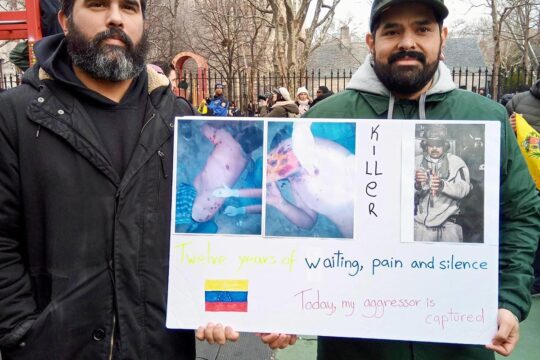The trial of Desire Munyaneza opened in January 2007 in the Montreal Court House and has travelled to Africa and Europe to hear some 66 witnesses called by the prosecution and the defence.
The parties invited to appear in the Canadian city the "contextual witnesses", including the retired Canadian General Romeo Dallaire, the then head of the United Nations force in Rwanda in 1994, and the late American historian, Dr Alison des Forges, who died in a plane crash early this year.
A son of a well-off businessman from Butare, Munyaneza is accused of having committed rapes, murdered and tortured civilians, and led one of the main militias which held road blocks of death in this prefecture of southern Rwanda.
He then fled to Cameroon before arriving in Canada in 1997 with a false passport. In spite of several requests, his request for asylum was rejected by the Canadian authorities because of his alleged role in the genocide. He was arrested in 2005 in Toronto, where he resided with his family, at the end of a five-year investigation by the federal police.
His trial is a test for Canadian justice because he is the first person accused in Canada in virtue of a law of "universal jurisdiction" on crimes against humanity, promulgated in October 2000.
If he was found guilty, he faces life in prison, that is to say 25 years without the possibility of parole.
In dark clothing and under the eyes of his wife, Munyaneza appeared very attentive during the hearings in Montreal, which many were held in closed session, taking notes scrupulously and exchanging remarks with his lawyers.
At the request of the crown (prosecution) and the defence, many witnesses appeared under protected identities, for fear of their safety.
Certain survivors, especially women, told that the one who was called "Gikovu" (scar in Kinyarwanda) would have controlled a network of Interahmwe militiamen in Butare in company of Arsene Shalom Ntahobali, the son of the former Minister for the Family Pauline Nyiramasuhuko.
On trial at the Arusha-based International Criminal Tribunal for Rwanda (ICTR) in Tanzania, Ntahobali and his mother, against whom the prosecutor has requested for life imprisonment last month, are waiting to know their fate.
A Rwandan prisoner stated that Munyaneza had orchestrated the massacre of 300 to 400 Tutsis in the church of Ngoma.
Confronted with these charges, the defence brought forth the contradictory remarks of certain prosecution witnesses and called close relatives of Munyaneza, as well as refugees that he hosted, to detail his timetable during the genocide.
The picture that they drew up is that of a son devoted to the family business and of a young man in love.
But certain defence witnesses hardly convinced the judge of the Superior Court of Quebec, Andre Denis, who said that there were testimonies which were "not pertinent" to the trial.
Whatever the verdict from Judge Denis, the case has every chance of going to appeal stage by one or the other party.
CS/ER/MM/SC/GF
© Hirondelle News Agency



